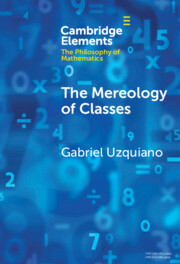1 results

The Mereology of Classes
-
- Published online:
- 13 May 2024
- Print publication:
- 06 June 2024
-
- Element
- Export citation

